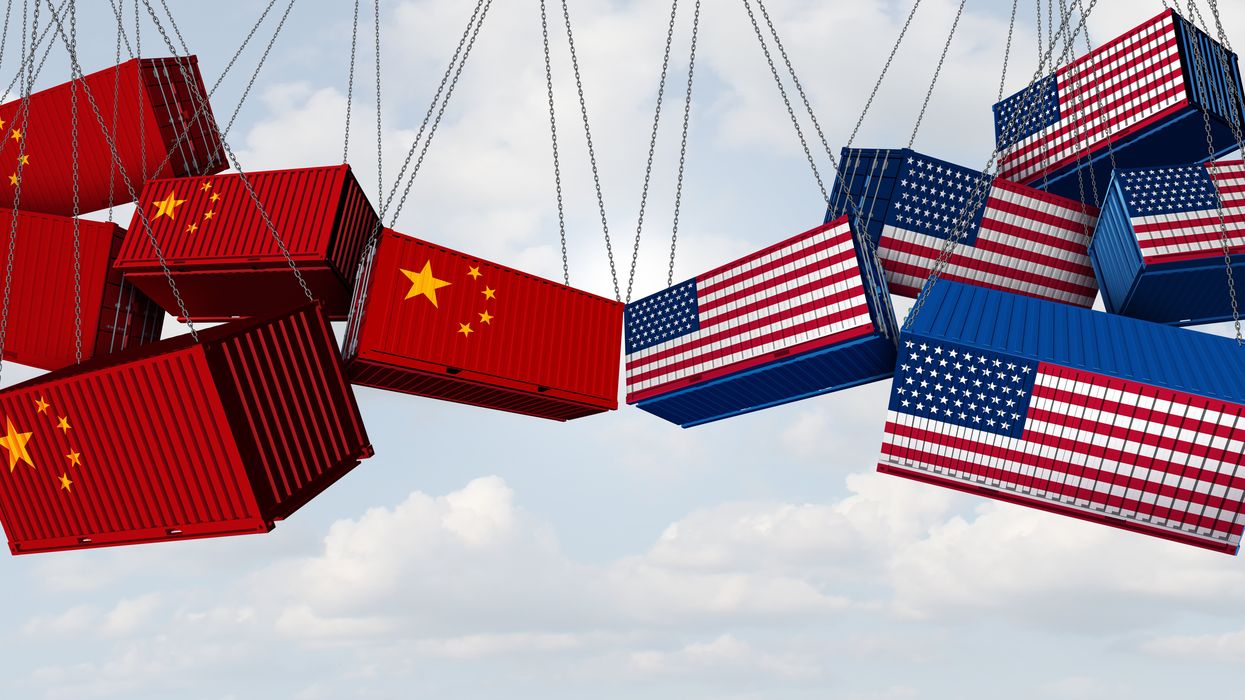What tariffs did the United States impose on China on April 2nd?
On April 2, 2025, President Donald Trump announced a series of tariffs, including a 10% universal tariff on all imports, with additional country-specific rates. For China, an additional 34% tariff was imposed.
These tariffs are in addition to the 10% tariff on China i mposed in February 2025, which was raised to 20% in March 2025, bringing the total tariff on Chinese imports to 54%.
The 10% universal tariff will take effect on April 5, 2025, while the higher country-specific rates, including the additional 34% on China, are scheduled to begin on April 9, 2025.
What amount of tariff did China announce on April 4th in response?
In retaliation, China announced a 34% tariff on all U.S. imports, set to go into effect on April 10, 2025.
Have any lawsuits been filed that could stop Trump's April 2nd tariffs?
On April 3, 2025, the New Civil Liberties Alliance (NCLA), a legal group with conservative backing, filed a lawsuit in federal court in Florida on behalf of Simplified, a Florida-based retailer. The lawsuit contends that the tariffs on Chinese imports are unconstitutional and seeks to block their implementation and enforcement. The plaintiffs argue that the President overstepped his authority by imposing these tariffs without proper congressional approval, asserting that such actions require detailed investigations and findings as stipulated by trade statutes.
Legal experts anticipate that the courts will need to determine whether the President's use of the International Emergency Economic Powers Act (IEEPA) to justify the tariffs is lawful. Historically, the IEEPA has been employed for sanctions rather than for imposing tariffs, making this a novel application of the law. The outcome of this lawsuit could set a significant precedent regarding the scope of presidential authority in trade matters.
In 2024, did China impose tariffs on the US, and did the US impose tariffs on China? If so, what products did they apply to?
In 2024, China and the United States had tariffs on each other's goods as part of their ongoing trade tensions.
- U.S. Tariffs on China: Tariffs included increases on solar wafers and polysilicon (from 25% to 50%), steel and aluminum (25%), electric vehicles (from 27.5% up to 102.5% over three years), and lithium-ion EV batteries and critical minerals (set to reach 25% by 2025).
- China's Tariffs on the U.S.: China imposed reciprocal tariffs targeting key U.S. exports, particularly agricultural and energy products. These included tariffs ranging from 10% to 15% on U.S. soybeans and sorghum, a 15% tariff on coal and liquefied natural gas (LNG), a 10% tariff on crude oil, and additional tariffs of 10% on U.S. agricultural machinery and automobiles.
What percentage of the total US trade deficit in 2024 was from China?
In 2024, the United States recorded a total goods trade deficit of approximately $1.2 trillion. Of this, the goods trade deficit with China accounted for $295.4 billion. This means that the deficit with China represented approximately 24.6% of that year's total U.S. goods trade deficit.
Are there any advantages of the trade deficit for the US?
Yes, despite often being viewed negatively, there are advantages of a trade deficit for the United States:
- Access to Diverse and Affordable Goods: A trade deficit allows the U.S. to import a wide variety of goods and services that may not be produced domestically, as well as an influx of cheaper imported goods, enhancing consumer choice and reducing prices, improving living standards.
- Foreign Investment: Trade deficits often lead to capital inflows, as foreign countries reinvest the dollars they earn from exports into U.S. assets like stocks, bonds, and real estate. This can strengthen the U.S. economy.
- Encouraging Economic Efficiency: Exposure to international competition through trade can drive domestic firms to become more efficient and innovative.
- Comparative Advantage: By importing goods that are cheaper or more efficiently produced elsewhere, the U.S. can focus on industries where it has a competitive edge, boosting overall productivity.
What are the disadvantages to the US of the current trade deficit with China?
The substantial trade deficit between the United States and China presents several challenges for the U.S. economy:
- Economic Dependence: A significant trade deficit can make the U.S. reliant on Chinese imports, which could pose risks during geopolitical tensions or supply chain disruptions.
- Manufacturing Job Losses: Critics argue that the trade deficit contributes to the outsourcing of manufacturing jobs to China, impacting domestic employment in certain industries.
- Weakened Domestic Industries: The influx of cheaper Chinese goods can make it challenging for U.S. manufacturers to compete, potentially leading to the decline of some industries.
- National Security: U.S. policymakers are increasingly worried about Chinese efforts to spread disinformation and collect sensitive information on Americans.
The Fulcrum strives to approach news stories with an open mind and skepticism, striving to present our readers with a broad spectrum of viewpoints through diligent research and critical thinking. As best we can, remove personal bias from our reporting and seek a variety of perspectives in both our news gathering and selection of opinion pieces. However, before our readers can analyze varying viewpoints, they must have the facts.




















Trump & Hegseth gave Mark Kelly a huge 2028 gift